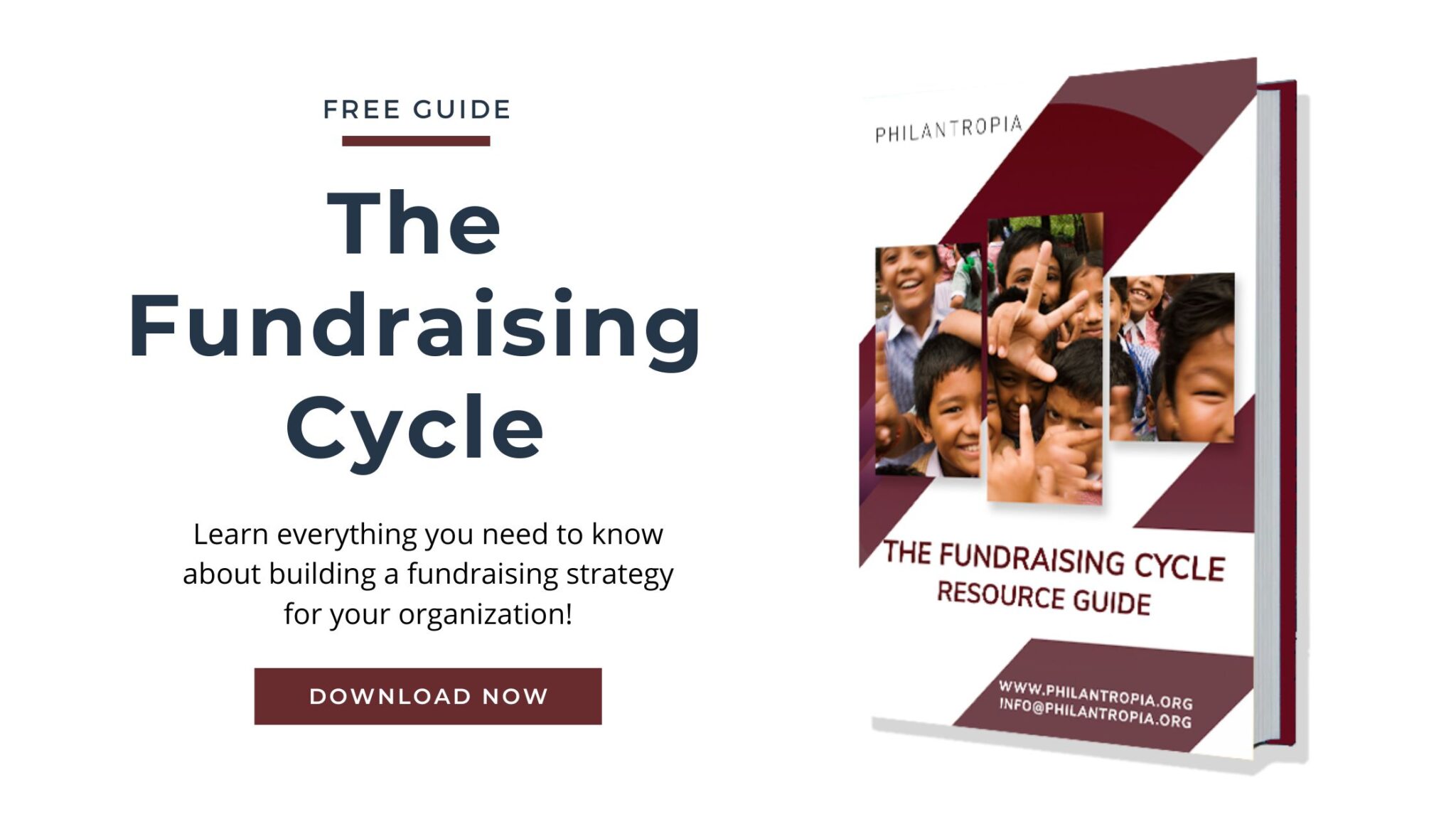When you contact or meet a donor for the first time, what are the easiest ways to ruin your shot at getting funded? First impressions count, and avoiding these mistakes will help you put your best foot forward.
Mistake #1: Not introducing yourself
Do not send an email to a donor without any introduction. Donors see many emails that only contain a funding request similar to this one:
“Can you fund our work with children in Uganda?”
Without so much as an introduction or explanation.
Explaining who you are and what the purpose of contacting the donor is will be much appreciated. Here is a better introduction:
“Dear Mr. James,
My name is Mary and I am the Director of “Children First” in Kampala, Uganda, a nationally recognized NGO. For the past 10 years, we have managed a successful program covering 100 children orphaned by HIV-AIDS.”
This introduction is still short and to the point while setting the proper tone for the rest of your communication.
Mistake #2: Spelling and grammar errors
When sending a letter or email to a donor, make sure you check and double-check your writing. And then have someone else check it again. While most donors will make some allowance for non-native speakers, glaring errors in spelling and grammar will make you look unprofessional.
What impression do you think this introduction will make on the donor?
“Dear M. James.,
I am Mary and the Director of NGO Kampala in Uganda with name “Children First”. We are known well in the nation. Already 10 years we got a successful program for 100 orphan children because of AIDS.”
They will likely think you either lack attention to detail or have limited capacity. Good communication plays an important role in implementing successful programs, so do not give the donor and reason to doubt your ability to communicate effectively.
Mistake #3: Being impolite
Follow the rules for basic etiquette and manners. Do not send an email that does not have a salutation. Don’t show up to a meeting chewing gum. Dress appropriately. Introduce yourself. Treat the donor the way you wish to be treated so you set the stage for a fruitful partnership.
Being late is also a big no-no. When meeting with a donor (whether in person or on the phone) be punctual. Lateness can often be interpreted as a lack of respect and professional courtesy, and donors often have very little flexibility in their full schedules.
Being too pushy or aggressive in your approach can also backfire. Typically, funding success takes time and requires the development of a relationship. Slow and steady wins the race.
Mistake #4: Not listening
Do not send a lengthy email or start on a long monologue about the great program you are running. First, ask questions and listen to what the donor has to say. This way you can find out whether your NGO is a good fit and you can direct the discussions around topics for which the donor has an interest. By listening first, you can grasp what problem the donor is trying to solve so you can pitch a project that solves that problem.
So, instead of: “Let me tell you in detail about this great program that we are running”
Try: “I would be very interested to learn more about your goals over the next few years”.
Mistake #5: Only going for the money
Aggressively asking for money can turn off even the most generous of donors. Most donors see grant agreements as a partnership between donor and grantee, so make sure it is clear that you want to build a relationship, not just receive a check. Money is secondary and only a tool to support projects that can solve a problem that both partners agree on.
Obviously, money is essential for NGOs to implement programs, yet you do not want the reputation of a partner that only takes and never gives back. Make sure to consider what you can do for the donor in addition to what the donor can do for you. Mainly the donor wants a partner who can run a good program, but to further reciprocate the relationship you can also strive to be a good communicator, be transparent, share expertise and lessons learned, and give thanks and recognition for their support. Don’t forget the donor once the money is in your account!
Mistake #6: Wasting time
The easiest way to show you respect someone is to value their time. Wasting donor time by being late, poorly communicating, making unnecessary requests, etc. are all great ways to tick off a donor.
Do not contact a donor without researching them first. Put in the time and effort to understand the donor and evaluate if they would be a willing and able partner. Sending a proposal to a donor that is uninterested in what you do is just a waste of everyone’s time.
Mistake #7: Not following directions
When you are asked by a donor to follow certain rules or guidelines, pay attention! Some donor applications are long and complicated, but it is important to stick to the rules or you risk not even being considered for funding. If there is a deadline, hold yourself to it. If you are asked to submit a one-pager, don’t send five. If the donor requires a certificate of registration, make sure it is included. If in doubt, ask the donor! They are often happy to give you direction.
Mistake #8: Writing unprofessional emails
An email is often the first form of contact you initiate with a donor, so make it a good one. Have a clear and relevant subject line, use a formal letter format, professional writing, and grammar, and keep your email short and to the point. Follow general email etiquette, and do not try to try to attract the donor’s attention with “tricks” like writing in ALL CAPS or using larger, colorful font, etc.
Mistake #9: Being unprepared
When you meet with a donor make sure you show up prepared. Think of the questions the donor could ask. Take printed materials that might support your case. Being unprepared shows a lack of knowledge and expertise. Make sure to send a knowledgeable representative or team.
At the same time, don’t make stuff up. Be honest when you do not have an answer. Do not make things look rosier than they are. Tell the donor you will investigate and let them know later.
Mistake #10: Not following up
After a meeting with a donor, always thank them for their time. Then make sure you actually send the follow-up information or do the follow-up activities you promised the donor, and do it quickly. Are you supposed to send a summary of a proposal? A copy of an annual report? A certificate of registration? Are you expected to schedule a follow-up meeting? There is always a to-do list that requires follow-up.
By avoiding these mistakes, you already become an above-average candidate in the years of a donor. Beyond this also remember to be persistent. Donors have little time and often cannot snap to attention when you want them to. Still, do not give up too quickly. It often takes time and effort before a donor will fund your project. Good luck!





How do I find donors?
Dear Akrit:
It is easy to find donor, the question is where to look for. In our articles here, we show you how to find one.
Stay tuned for more articles on Dnor research.